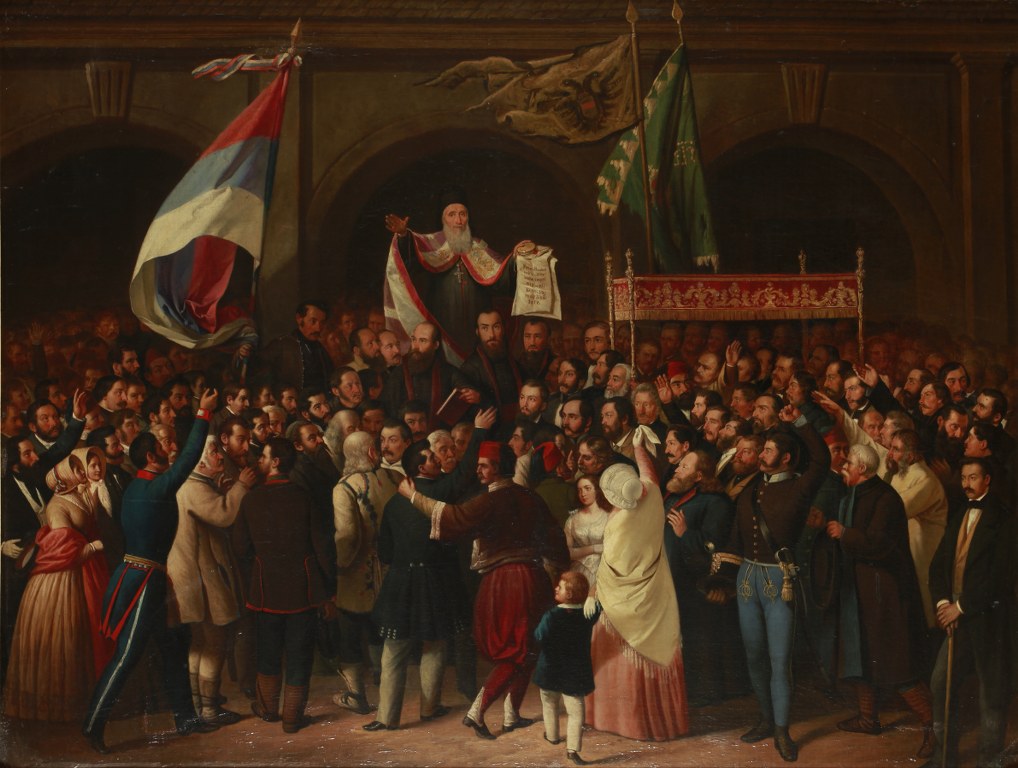|
Duško Trifunović
Duško Trifunović (, 13 September 1933 – 28 January 2006) was a Serbian and Yugoslav writer, poet and television author. Life Born in the small village of Sijekovac near Bosanski Brod (then part of the Vrbas Banovina, Kingdom of Yugoslavia), to father Vaso and illiterate mother Petra. His father died from tuberculosis in 1945. Trifunović did not have much formal schooling since he started working in a factory during his early teens. Working as a locksmith affixing train wagon doors, he eventually moved to Sarajevo in 1957 at the age of 24 to continue the same line of work. Parallel to his factory work, he also secretly wrote poetry and once in Sarajevo finally got a chance to pursue it in earnest. He published his first book in 1958, and over the next 48 years wrote 84 poetry books, four novels, and several dramas. He also wrote over 300 song lyrics, most notably for Bijelo dugme (nation-wide hits " Ne gledaj me tako i ne ljubi me više" " Šta bi dao da si na mom mjestu" ... [...More Info...] [...Related Items...] OR: [Wikipedia] [Google] [Baidu] |
Sremski Karlovci
Sremski Karlovci ( sr-Cyrl, Сремски Карловци, ) is a town and municipality located in the South Bačka Districtautonomous province of Vojvodina, Serbia. It is situated on the banks of the Danube, from Novi Sad. According to the 2022 census results, it has a population of 7,872 inhabitants. The town has traditionally been known as the seat of the Patriarchate of Karlovci, Serbian Orthodox Church in the Habsburg Monarchy. It was the political and cultural capital of Serbian Vojvodina after the May Assembly and during the Revolution in 1848. Name In Serbian language, Serbian, the town is known as ''Sremski Karlovci'' (Сремски Карловци), in Croatian language, Croatian as ''Srijemski Karlovci'', in German language, German as ''Karlowitz'' or ''Carlowitz'', in Hungarian language, Hungarian as ''Karlóca'', in Polish language, Polish as ''Karłowice'', in Romanian language, Romanian as ''Carloviț'' and in Turkish language, Turkish as ''Karlofça''. The form ... [...More Info...] [...Related Items...] OR: [Wikipedia] [Google] [Baidu] |
Serbian Male Poets
Serbian may refer to: * Pertaining to Serbia in Southeast Europe; in particular **Serbs, a South Slavic ethnic group native to the Balkans ** Serbian language ** Serbian culture **Demographics of Serbia, includes other ethnic groups within the country *Pertaining to other places **Serbia (other) **Sorbia (other) *Gabe Serbian (1977–2022), American musician See also * * * Sorbs * Old Serbian (other) Old Serbian may refer to: * someone or something related to the Old Serbia, a historical region * Old Serbian language, a general term for the pre-modern variants of Serbian language, including: ** the Serbian recension of Old Church Slavonic la ... {{Disambiguation Language and nationality disambiguation pages ... [...More Info...] [...Related Items...] OR: [Wikipedia] [Google] [Baidu] |
Bosnia And Herzegovina Writers
Bosnia and Herzegovina, sometimes known as Bosnia-Herzegovina and informally as Bosnia, is a country in Southeast Europe. Situated on the Balkans, Balkan Peninsula, it borders Serbia to the east, Montenegro to the southeast, and Croatia to the north and southwest, with a coast on the Adriatic Sea in the south. Bosnia (region), Bosnia has a moderate continental climate with hot summers and cold, snowy winters. Its geography is largely mountainous, particularly in the central and eastern regions, which are dominated by the Dinaric Alps. Herzegovina, the smaller, southern region, has a Mediterranean climate and is mostly mountainous. Sarajevo is the capital and the largest city. The area has been inhabited since at least the Upper Paleolithic, with permanent human settlement traced to the Neolithic cultures of Butmir culture, Butmir, Kakanj culture, Kakanj, and Vučedol culture, Vučedol. After the arrival of the first Proto-Indo-Europeans, Indo-Europeans, the area was populated ... [...More Info...] [...Related Items...] OR: [Wikipedia] [Google] [Baidu] |
Serbs Of Bosnia And Herzegovina
The Serbs of Bosnia and Herzegovina ( sr-Cyrl, Срби Босне и Херцеговине, Srbi Bosne i Hercegovine), often referred to as Bosnian Serbs ( sr-cyrl, босански Срби, bosanski Srbi) or Herzegovinian Serbs ( sr-cyrl, херцеговачки Срби, hercegovački Srbi), are native and one of the three Constitutive nations of Bosnia and Herzegovina, constituent nations of the country, predominantly residing in the Political divisions of Bosnia and Herzegovina, political-territorial entity of Republika Srpska. Most declare themselves Eastern Orthodoxy in Bosnia and Herzegovina, Eastern Orthodox Christians and speakers of the Serbian language. Serbs have a long and continuous history of inhabiting the present-day territory of Bosnia and Herzegovina, and a long history of statehood in this territory. Slavs settled the Balkans in the 7th century and the Serbs were one of the main tribes who settled the peninsula including parts of modern-day Herzegovina. P ... [...More Info...] [...Related Items...] OR: [Wikipedia] [Google] [Baidu] |
History Of Bosanski Brod
History is the systematic study of the past, focusing primarily on the human past. As an academic discipline, it analyses and interprets evidence to construct narratives about what happened and explain why it happened. Some theorists categorize history as a social science, while others see it as part of the humanities or consider it a hybrid discipline. Similar debates surround the purpose of history—for example, whether its main aim is theoretical, to uncover the truth, or practical, to learn lessons from the past. In a more general sense, the term ''history'' refers not to an academic field but to the past itself, times in the past, or to individual texts about the past. Historical research relies on primary and secondary sources to reconstruct past events and validate interpretations. Source criticism is used to evaluate these sources, assessing their authenticity, content, and reliability. Historians strive to integrate the perspectives of several sources to develop a ... [...More Info...] [...Related Items...] OR: [Wikipedia] [Google] [Baidu] |


